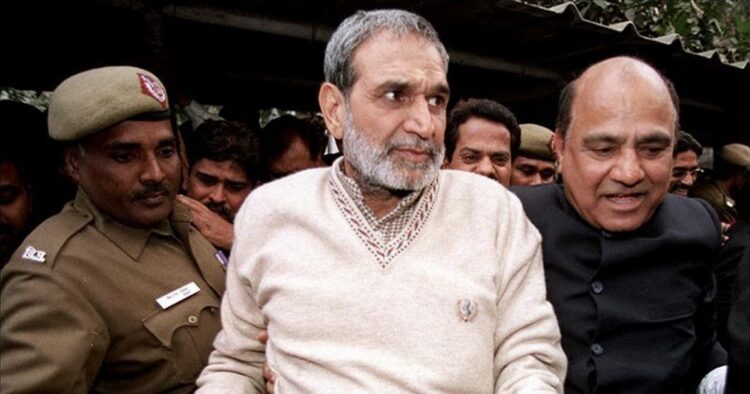On Tuesday, former Congress leader Sajjan Kumar was awarded life imprisonment by special court in murder case in connection with the 1984 anti-Sikh riots. On February 12, the court convicted Sajjan Kumar for the offence and sought a report from Tihar Central Jail authorities on his psychiatric and psychological evaluation in view of a Supreme Court order asking for such a report in cases attracting capital punishment.
The minimum punishment for murder is life imprisonment whereas the maximum is death.
Complainant sought maximum punishment
The complainant in the case, who lost her husband and son in a mob attack during the 1984 anti-Sikh riots ncited by Kumar, requested the maximum penalty of death for him.
“The accused, as the leader of the mob, incited others to carry out genocide, crimes against humanity, and cold-blooded murders. He deserves nothing less than the death penalty,” said Senior advocate HS Phoolka, representing the complainant.
Jaswant Singh and his son Tarundeep Singh were killed on November 1, 1984. HS Phoolka pointed out that Sajjan Kumar had been convicted by the Delhi High Court for five murders in another case related to the riots in Delhi Cantonment’s Raj Nagar area, and that these murders, alongside the ones in the present case, were part of a broader genocide.
HS Phoolka said that Sajjan Kumar led the mob that killed the two men and that anyone who instigate such killings deserves a harsher punishment. He further emphasized that while Kumar received a life sentence for the Raj Nagar case, he now deserves a death sentence.
The prosecution alleged that a large mob, armed with weapons, carried out extensive looting, arson, and destruction of Sikh property in retaliation for the assassination of former Prime Minister Indira Gandhi. The mob targeted the complainant’s house, killing her husband and son, and looted and set their property on fire.
The Nanavati Commission, established to probe the violence and reported that 587 FIRs were filed in Delhi in connection to the riots, which led to the deaths of 2,733 people. Of these, 240 cases were closed as “untraced” and 250 resulted in acquittals. Only 28 cases led to convictions, with approximately 400 people convicted, including 50 for murder, such as Kumar.
Sajjan Kumar, a Congress leader and MP at the time, was also involved in the killings of five people in Delhi’s Palam Colony on November 1 and 2, 1984. He was sentenced to life imprisonment by the Delhi High Court in that case, and his appeal is still pending before the Supreme Court.

















Comments